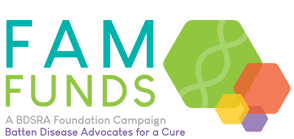Rutgers Scientists Develop Therapy for Fatal Childhood Disease
Peter Lobel and David Sleat, who conduct research at the Center for Advanced Biotechnology and Medicine of Rutgers Biomedical and Health Sciences, received the council’s Edison Award November 12 at its annual awards dinner.
The two scientists developed the first-ever effective method to deliver therapy for a progressive childhood illness known as Batten Disease, or Late Infantile Neuronal Ceroid Lipofuscinoses (LINCL). Batten Disease is a rare but devastating disorder caused by mutations in the CLN2 gene and protein (Tripeptidyl peptidase I, TPP1). Patients develop symptoms between ages 2 and 4 and die by 8 to 12 years. There is no effective treatment for this disease; symptoms are managed through the use of anti-epileptic drugs and physical, speech, and occupational therapies.
Click here to read the full article from the Rutgers Office of Research and Economic Development.


